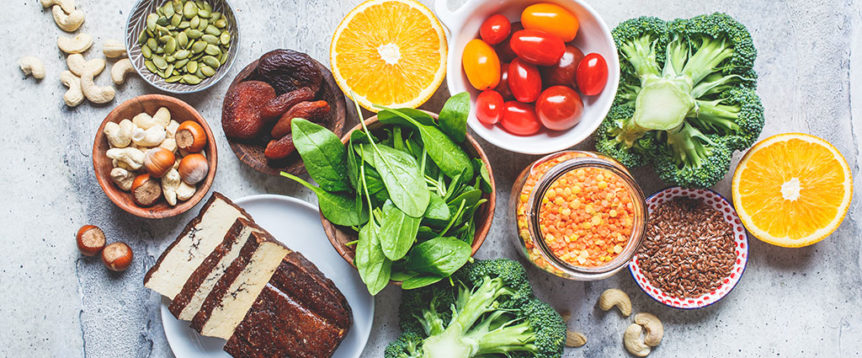If you’ve been feeling tired, weak or dizzy, you might want to check with your doctor to see if you have iron deficiency. These common symptoms—along with shortness of breath, headaches, low body temperature and sallow skin—often don’t show up until iron deficiency worsens. Once you’ve been diagnosed, you might wonder how to treat your iron deficiency—a condition in which your body lacks enough red blood cells.
Of course, treating iron deficiency really depends on the cause, which can stem from blood loss (from digestive issues or heavy menstrual periods) to inadequate iron in the diet. While you’ll want to follow your doctor’s advice, here are three quick tips to help in treating iron deficiency.
1. Eat an iron-rich diet. Iron plays an important role in your body’s normal growth and development as it helps to carry oxygen from your lungs to the rest of your body. According to the Academy of Nutrition and Dietetics, your body absorbs two to three times more iron from animal sources than from plants. An iron-rich diet should include animal proteins such as fish, oysters, lean beef, chicken and turkey. Not a meat-eater? Try baked potatoes, beans, cashews, dried fruit (such as apricots and raisins), lentils, molasses, tofu, peas, spinach and iron-fortified cereals, grains and pastas.
2. Eat more foods that contain vitamin C. Why? Because your body absorbs less iron from plant-based foods than it does from animal-based ones. Adding foods with vitamin C to your diet will enhance your body’s iron absorption from plant-based foods, especially if you eat or drink them at the same time you eat iron-rich foods. Foods rich in vitamin C include citrus fruit (think oranges and grapefruits) and their juices, broccoli, leafy greens, melons, peppers and tomatoes.
3. Take iron supplements. Your doctor might suggest taking iron tablets to help build up iron levels in your body. The dosage will depend on your specific needs, but many people take 150–200 mg a day. For best results, take iron supplements on an empty stomach to aid in absorption. According to the National Heart, Lung, and Blood Institute, it typically takes three to six months to replenish your iron stores.
Treating iron deficiency—and preventing this condition in the first place—starts with eating an iron-rich diet of healthy, nutritious foods. The adage “food is medicine” really does ring true for many health issues.

